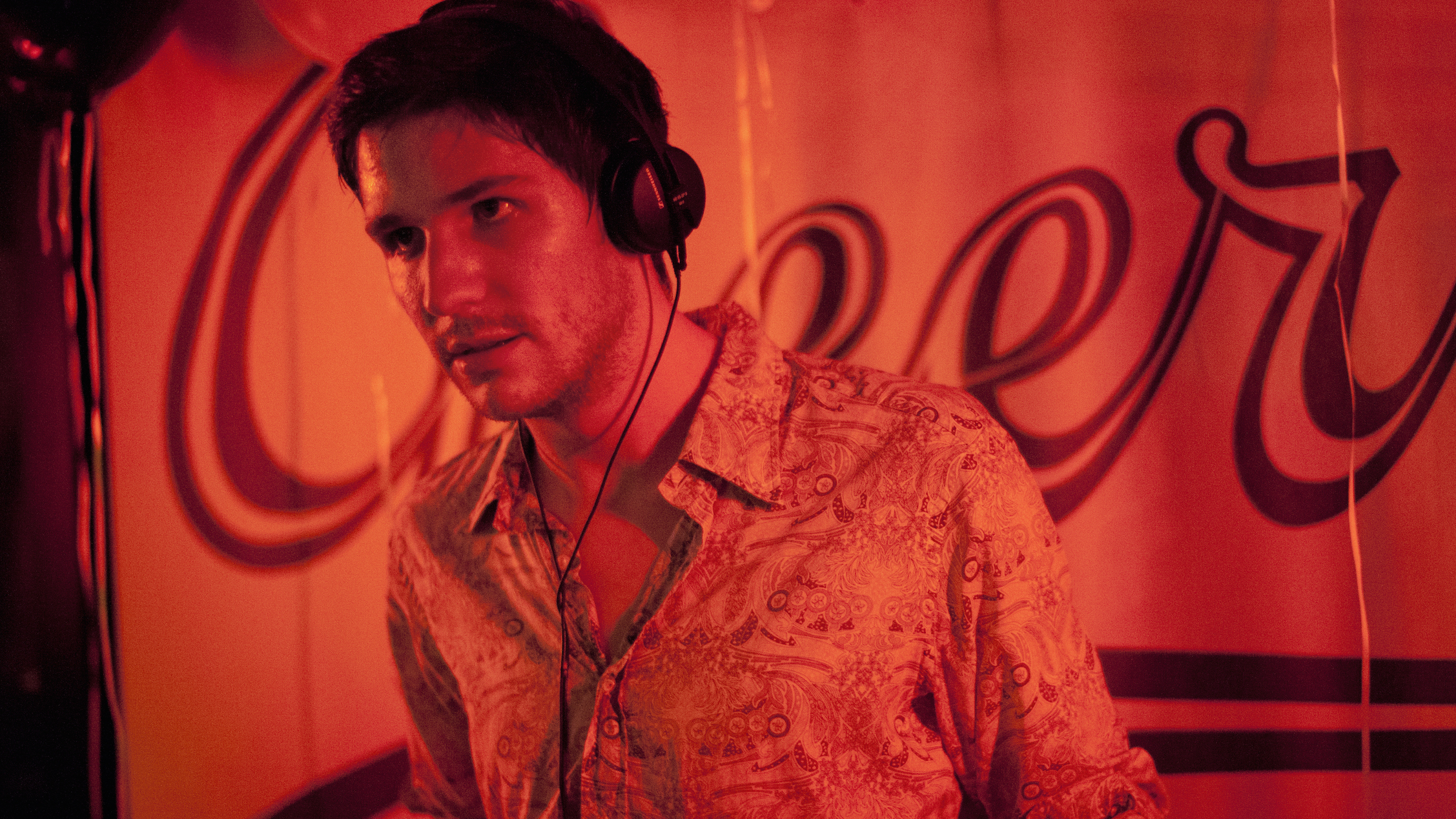A recently released trailer for Eden, a film about the so-called French touch scene (a house subgenre indebted to American disco) of the ’90s, features a fictional Daft Punk debuting “Da Funk” at a house party. “Not bad. I prefer when it was more techno,” says one character, Louise (Pauline Etienne). “You don’t get it,” says her friend, Cyril (Roman Kolinka). “It’s amazing. Modern disco.” Later in the film — spoiler alert — Cyril commits suicide; when his friends, including Paul (Félix de Givry) — an aspiring garage DJ who spins as part of a duo called Cheers — gather at a nearby watering hole to mourn his passing, Discovery‘s morose “Veridis Quo” swells out of speakers playing a local radio station. Poignant yet ironic, the scene is a turning point in the film, hinting at the near future in which Thomas Bangalter and Guy Manuel de Homem-Christo’s star starts to rise, as Cheers remains rooted in Paul’s affection for the lovey-dovey disco bounce of Frankie Knuckles and Kings of Tomorrow, which ultimately loses them their audience.
Similar to how his competitors have real-life counterparts, Paul’s character (and his relationship with the helmeted producers) is based on Eden screenwriter Sven Hansen-Løve, brother of director Mia and a former DJ himself. Though he’s good friends with Daft Punk — Hansen-Løve told SPIN they sold him their tracks for cheap so the filmmakers could use the low price as a benchmark to leverage with other artists featured on the soundtrack — he couldn’t resist poking a little fun at his former friendly competitors. In one scene, the bouncer turns the young, slightly hunched and pale duo away from the doors at one of Paul’s parties because he doesn’t recognize them without their head gear. But Bangalter — who Sven says found actor Vincent Lacoste‘s resemblance to him “very funny” — and Manuel de Homem-Christo took it in stride, even giving suggestions to the Hansen-Løves.
“When we wrote the script, they read it, and they gave us some suggestions and critiques and commentaries,” says Sven. “They told us about those several times when they were turned away from clubs, and suggested that we could put it in the script. It was a very good idea because that scene is funny, but also it says something about [how they were unknown at] the time.” Other scenes that actually happened — or “souvenirs,” as Sven calls them include — include Mia helping Sven figure out the piano chords to Liquid’s epically emotive “Sweet Harmony” so he could use them in one of his own tracks, and Cyril’s descent into depression, which happened to someone close to him.
“We take things from real people and put it in one character, and some other things [in another character],” says Sven. “All the characters are loosely based on friends. It’s all mixed up. I think fiction is like that very often.”
He takes some more creative liberties with his own on-screen avatar. Like Sven, Paul throws a sparsely attended failure of a New Year’s Eve party on a boat, even though Sven didn’t “get drunk and cry like the character,” he says. “I was just pissed off, actually.” And at one point, after decades of squandering his earnings on cocaine, Paul tells his ex-lover Louise on a beach walk that he’s getting too old to DJ — a realization Sven also had, one that ironically led him to take a job working with Mia on Eden. “It was exactly the moment I was thinking, ‘Okay, I don’t want to do this anymore,'” he says.
Filming and putting together the soundtrack to Eden took “almost a year” because “investors were very reluctant to put money on it,” says Sven, and some of the older artists on his and Mia’s list of desired songs, like First Choice’s ’77 Salsoul Records classic “Dr. Love,” didn’t bargain with their Daft Punk deal. “They didn’t want to do it, because I think they come from another era and they don’t really care about Daft Punk,” says Sven. “They just wanted the money basically.” Nonetheless, the Hansen-Løves got “98 percent” of what they were going for, including dreamily flute-riddled “The MKappella” by MK (back when the producer was “underground”) and Sueño Latino’s giddily tropical self-titled tune. Choosing the songs themselves entailed “three aspects of choice,” says Sven. The first one that was “that the songs are contemporary to the period, that they are really organic, and they were the most popular songs of the time,” such as the Orb’s intergalactic tribal rave “A Huge Evergrowing Pulsating Brain”; two, a few had to be songs that he and Mia had personally connected with; or three, they had to be directly related to the film (like “Sweet Harmony”).
Though Eden follows a long tradition of movies about dance music, Sven says it wasn’t directly inspired by many of them; only 24 Hour Party People, about the Manchester music scene from 1976 to 1992, informed the club scenes. Fake documentary It’s All Gone Pete Tong and UK rave comedy Weekender, on the other hand, showed them what they didn’t want. “[Weekender is] about some guys that start out at a small rave party, and they get bigger and bigger, and they have problems,” Sven says, admitting that in that sense it’s like Eden. “But it’s the same as Pete Tong’s film: we didn’t want to do that. We wanted to do something much more realistic.”





